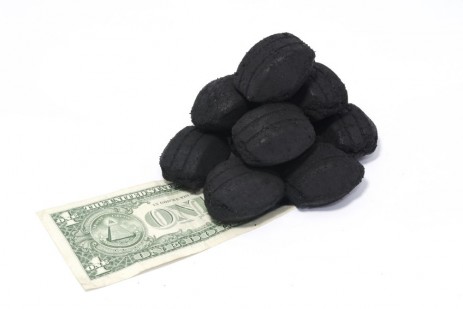BP couldn’t stop the oil gusher with a junk shot of golf balls and tire shards and Congress can’t solve the energy problems that are the root cause of the gusher with a junk shot of unenforceable goals and unfunded subsidies. Eventually the gusher will be plugged by drilling a new well that can be used to establish a permanent seal. This will take some time, but fortunately no one suggested that BP should wait to begin working on a permanent solution until after it had tried every half-measure it could think of.
Not so when it comes to ending our dangerous dependence on oil and other fossil fuels, which inevitably leads to more disasters like the one in the Gulf of Mexico, chains our fate to that of dictators in the Gulf of Arabia, and disrupts the stability of the climate on which our civilization was built. Congress has enacted seven major energy bills since 1974, most of which promised to make America energy independent and none of which have delivered. Some in Congress want to repeat this junk shot approach, hoping for a different result.
Others want Congress to focus narrowly on cleaning up the oil spill and reforming drilling regulations. They make two wildly contradictory arguments against a comprehensive response that includes limits on carbon pollution. First they say that an energy and climate bill is not a response to the oil spill because it won’t significantly reduce America’s insatiable oil appetite. Simultaneously they argue that any bill that limits carbon pollution is a giant gasoline tax that will force Americans out of their cars. These arguments can’t both be right. In fact, neither is.
The first line of argument suggests that carbon pollution limits won’t change the price of gasoline enough to significantly affect consumer behavior so they won’t meaningfully reduce oil demand. The premise is right (contradicting the second argument), but the conclusion is wrong. The carbon limits in a bill like the American Power Act hold oil companies, power producers, and heavy industry responsible for their pollution, but these limits tighten gradually to give polluters time to clean up their act. According to EPA’s recent analysis, the oil pollution limits in the American Power Act would change gasoline prices by only ten cents per gallon in 2020, less than normal price fluctuations from month to month.
How then would comprehensive climate and energy legislation end our dependence on dirty and dangerous sources of oil? In the near term the primary effect of the pollution limits will be to direct investment toward carbon cutting technologies by making it clear that failing to do so would be an increasingly expensive mistake as the pollution limits ratchet down. Equally important, complementary measures will directly reduce demand for oil by ratcheting up efficiency standards for cars, establishing the first-ever standards for heavy trucks, and investing in the infrastructure to replace petroleum fuels with electricity, natural gas, and sustainable biofuels (see sections 4111-4141 of the APA). Finally, the emission limits in a comprehensive bill will promote the capture of millions of tons of CO2 from power plants and industrial smokestacks. This CO2 can be injected into aging onshore oil fields in the United States to boost recovery of otherwise trapped oil, displacing imports and the need to drill in ever deeper and more dangerous waters.
Let’s do the numbers. As I have described in more detail before, EPA has shown that we could cut oil demand by almost 7 million barrels per day by 2030. Meanwhile, CO2 enhanced oil recovery could increase domestic onshore production by 3 million barrels per day. In comparison, current offshore production in the Gulf of Mexico is 1.6 million barrels per day. The net effect would be to increase domestic production by ten times as much as would expanded offshore drilling, cut imports by at least half, and put us on a path to finally end our dependence on oil once and for all.
Passing a comprehensive energy and climate plan is not an instant fix for the mess we are in. But unlike another junk shot, it will provide real relief if we start now.



